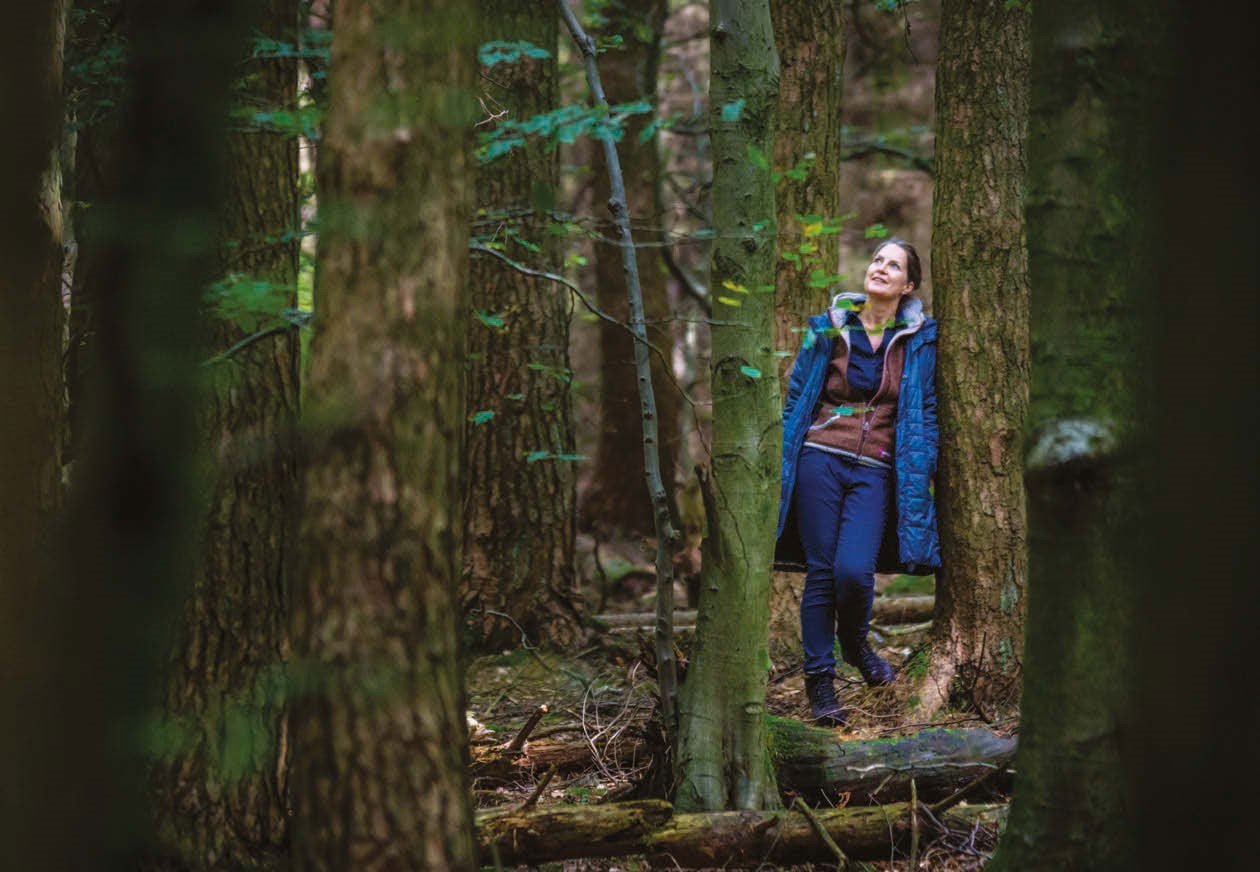
Connecting with nature during a forest bathing session is not conventional exercise; it’s slower and more meditative
The forest is the therapist, not me,” says Liz Dawes, gesturing across a fi eld towards a patch of idyllic woodland. “As your guide, I am simply here to open the door to the forest.”
I’m in Yorkshire to take part in a guided session of shinrin-yoku, the Japanese practice of ‘forest bathing’. For many years, the Japanese have understood that mindful time in the woods is benefi cial to both the body and soul - and now the art form is growing in popularity in the UK and across the world, with the Duchess of Cambridge a confi rmed fan. I’ll admit, though, to feeling a little cynical: am I about to head into the woods with a bunch of tree-hugging hippies? But I’m also excited about the prospect: how will quiet, meditative time in the forest aff ect me?